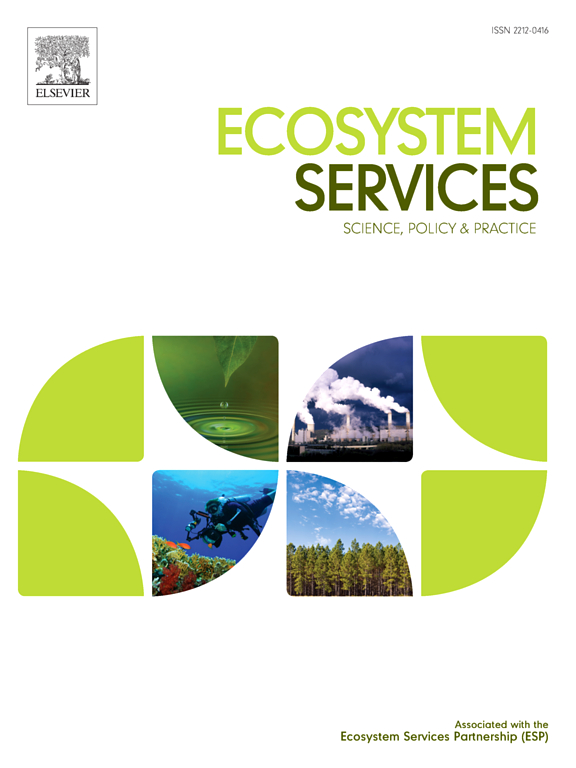流域服务补偿中的合作模式与不确定水质:中国九洲江生态补偿
IF 6.6
2区 环境科学与生态学
Q1 ECOLOGY
引用次数: 0
摘要
随着流域服务付费计划(PWS)在全球的广泛实施,根据预期水质确定下游付费率对于设计高效的 PWS 计划至关重要。本研究结合中国九洲江横向生态补偿(JRBHE)案例研究,建立了一个考虑水质不确定性的随机微分博弈模型。利用该模型,本研究探讨了水质的不确定性如何影响各利益相关者的流域保护行为决策。通过比较多个 JRBHE 情景下利益相关者流域保护行为的变化,本研究认为 PWS 中的协作生态补偿模型可以协调多方利益相关者在流域服务和水质方面的目标,从而实现社会最优。此外,本研究还强调,由于水质的不确定性,合作生态补偿模式比现有的横向生态补偿模式风险更大,因此合作生态补偿模式往往需要旨在降低风险的惩罚措施。最后,本研究强调,由于水质的不确定性和利益相关者的风险偏好都会影响其最终的流域保护行为,因此设计激励相容的公共工程系统方案仍具有挑战性。本文章由计算机程序翻译,如有差异,请以英文原文为准。
Collaborative models and uncertain water quality in payments for watershed services: China’s Jiuzhou River eco-compensation
As Payments for Watershed Services (PWS) schemes are widely implemented around the world, determining downstream payment rates based on expected water quality is critical to designing efficient PWS schemes. Combined with a case study of the Jiuzhou River Horizontal Eco-compensation (JRBHE) in China, this study builds a stochastic differential game model of PWS considering water quality uncertainty. Using this model, this study explores how water quality uncertainty affects the decision-making of watershed protection behaviors of various stakeholders in PWS. In comparing changes in stakeholder watershed protection behaviors in multiple JRBHE scenarios, this study argues that the collaborative eco-compensation model in the PWS can achieve social optimality as it can coordinate multi-stakeholder goals regarding watershed services and water quality. In addition, this study also emphasizes that the collaborative eco-compensation model is riskier than the existing horizontal eco-compensation model due to water quality uncertainty, and penalties aimed at reducing risk are often necessary for the collaborative eco-compensation model. Finally, this study highlights that designing incentive-compatible PWS schemes remains challenging because both water quality uncertainty and stakeholders’ risk preferences influence their ultimate watershed protection behavior.
求助全文
通过发布文献求助,成功后即可免费获取论文全文。
去求助
来源期刊

Ecosystem Services
ECOLOGYENVIRONMENTAL SCIENCES&-ENVIRONMENTAL SCIENCES
CiteScore
14.90
自引率
7.90%
发文量
109
期刊介绍:
Ecosystem Services is an international, interdisciplinary journal that is associated with the Ecosystem Services Partnership (ESP). The journal is dedicated to exploring the science, policy, and practice related to ecosystem services, which are the various ways in which ecosystems contribute to human well-being, both directly and indirectly.
Ecosystem Services contributes to the broader goal of ensuring that the benefits of ecosystems are recognized, valued, and sustainably managed for the well-being of current and future generations. The journal serves as a platform for scholars, practitioners, policymakers, and other stakeholders to share their findings and insights, fostering collaboration and innovation in the field of ecosystem services.
 求助内容:
求助内容: 应助结果提醒方式:
应助结果提醒方式:


